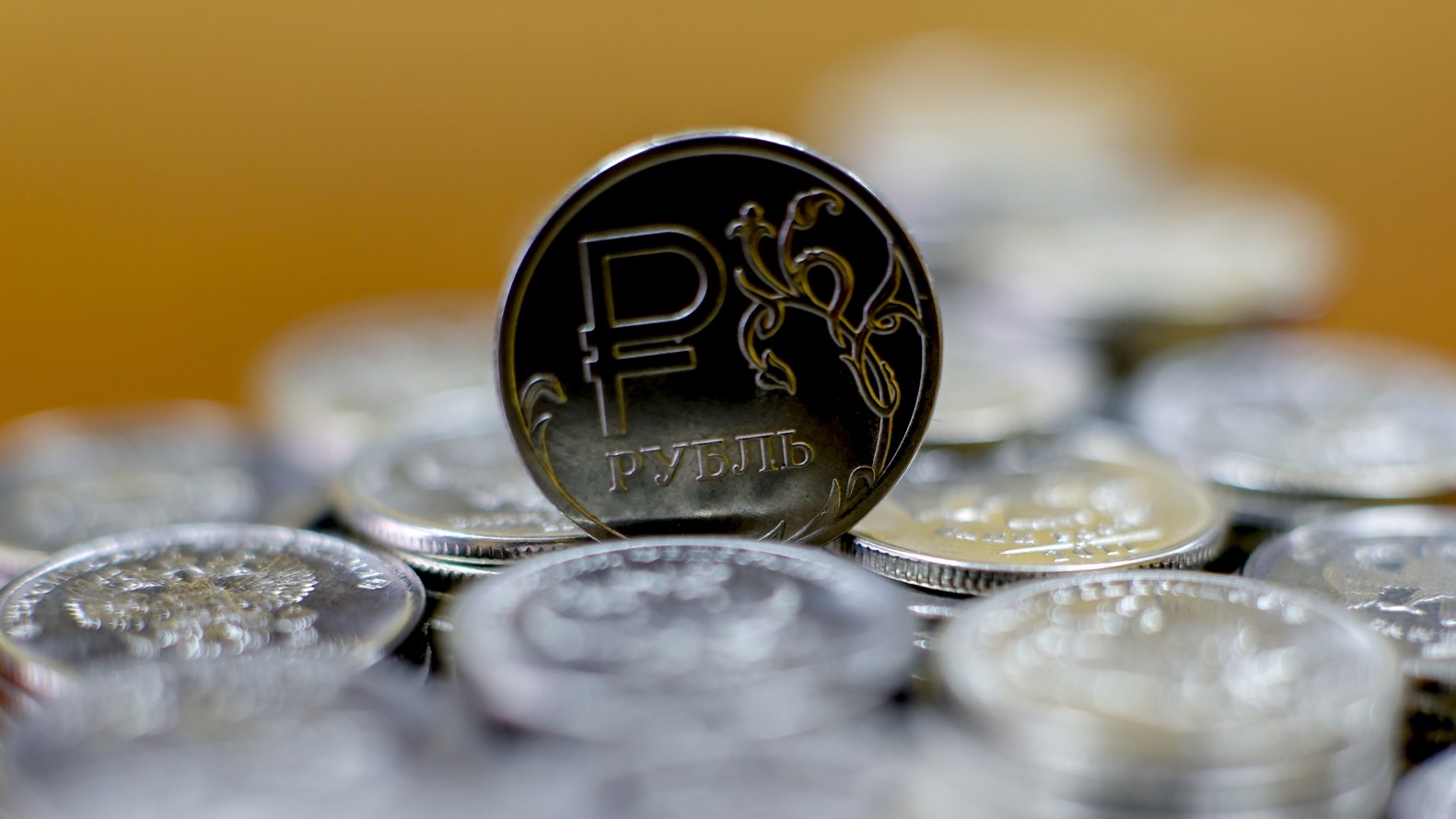Russia's currency crisis as sanctions bite
Rouble plunges to lowest rate against dollar since invasion of Ukraine as economic toll finally begins to be felt

A free daily email with the biggest news stories of the day – and the best features from TheWeek.com
You are now subscribed
Your newsletter sign-up was successful
Russia's wartime economy may be starting to feel the strain of the conflict, as Western sanctions finally begin to bite.
Last week Russia's currency, the rouble, plunged to its lowest rate against the dollar since the immediate aftermath of the country's invasion of Ukraine in February 2022.
Why is it happening now?
The catalyst for the recent currency crisis seems relatively innocuous when compared to the already stifling international sanctions that preceded it.
The Week
Escape your echo chamber. Get the facts behind the news, plus analysis from multiple perspectives.

Sign up for The Week's Free Newsletters
From our morning news briefing to a weekly Good News Newsletter, get the best of The Week delivered directly to your inbox.
From our morning news briefing to a weekly Good News Newsletter, get the best of The Week delivered directly to your inbox.
On 21 November the US Treasury Department imposed new restrictions on around 50 Russian banks, including Gazprombank, the financial arm of the giant state gas firm that had been used for foreign purchasers of Russian gas payments.
This created a "dollar rush", said The Spectator, "but make no mistake: the rouble's devaluation has been on the cards for some time".
It has fallen 10% since then and is now down 20% for the year against the dollar. While the current devaluation is "far from catastrophic," said the magazine, "it's a sign of a sick economy".
Can the Kremlin do anything about it?
The Kremlin is "engaged in a tricky juggle", reported AP News. Massive government spending on the war effort has kept the economy growing more strongly than many expected. But it has also resulted in inflation running at over 8% annually to October, which in turn has prompted the central bank to raise interest rates to 21%.
A free daily email with the biggest news stories of the day – and the best features from TheWeek.com
In this context, a weaker rouble is a "double-edged sword" said The Economist. A lower rate against the dollar boosts the rouble value of oil exports, "helping plug the government's widening deficit". At the same time, "it also pushes up the price of imported goods – something that matters for both consumers and the government's war effort".
The weaker rouble has already "caused jitters" among exporters in China, said Newsweek. Russia's "main trading partner after sanctions dried up other markets", Chinese exporters have now suspended sales on Russian e-commerce platforms.
It may have rebounded slightly after Russia's central bank halted all foreign currency purchases for the remainder of the year, but the rouble "remains battered", said Fortune, "and resources for preventing a further collapse are shrinking".
A case in point is Russia's National Wealth Fund, which has been "tapped repeatedly to prop up the rouble", leaving the Kremlin with less firepower to battle another currency collapse, said Bloomberg.
What does it mean for the future?
Vladimir Putin told reporters last week that "there are certainly no grounds for panic". But the rouble and inflation remain key concerns for the Kremlin, said Janis Kluge, an expert on the Russian economy at the German Institute for Security and International Affairs in Berlin.
"The inflation rate and the exchange rate, those two are very visible and you can feel it in your pocket," he told AP, adding "there is no propaganda in the world that will convince you prices are not rising when prices are rising".
This combination of a declining currency and a ballooning budget deficit – defence and security spending will rise by another 25% next year to a post-cold war high of around 8% of Russia's GDP – has "led to talk of a hard landing for the Russian economy in 2025", concluded The Economist. Following two years of stronger than expected growth in the face of international sanctions, "the pace of expansion will slow sharply".
"The economic bill for the war is at last coming due. It could be a big one."
Elliott Goat is a freelance writer at The Week Digital. A winner of The Independent's Wyn Harness Award, he has been a journalist for over a decade with a focus on human rights, disinformation and elections. He is co-founder and director of Brussels-based investigative NGO Unhack Democracy, which works to support electoral integrity across Europe. A Winston Churchill Memorial Trust Fellow focusing on unions and the Future of Work, Elliott is a founding member of the RSA's Good Work Guild and a contributor to the International State Crime Initiative, an interdisciplinary forum for research, reportage and training on state violence and corruption.